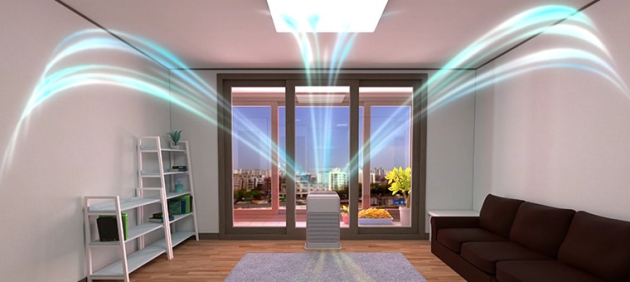Indoor air quality (IAQ) plays a crucial role in the health and comfort of your home. With modern lifestyles keeping us indoors more than ever, ensuring clean and breathable air is a top priority. Upgrading your HVAC system is one of the most effective ways to enhance indoor air quality while maintaining energy efficiency.
In this article, we’ll explore how HVAC upgrades can improve air quality, reduce pollutants, and create a healthier living environment for your family.
Why Indoor Air Quality Matters
The Environmental Protection Agency (EPA) notes that indoor air pollution can be 2 to 5 times worse than outdoor air pollution. Contaminants like dust, mold, pet dander, and volatile organic compounds (VOCs) accumulate inside homes, impacting health and comfort. Poor IAQ can lead to:
- Respiratory problems and allergies.
- Fatigue, headaches, and irritation.
- Increased risk of chronic health conditions.
Learn more about how to protect indoor air quality in your home.
How HVAC Systems Influence Air Quality
Your HVAC system is responsible for circulating air throughout your home. A well-maintained and upgraded system can filter out pollutants, regulate humidity, and ensure consistent airflow. Here’s how HVAC systems affect IAQ:
- Filtration: High-quality filters capture allergens, dust, and particles.
- Ventilation: Proper ventilation prevents stale air and reduces pollutant buildup.
- Humidity Control: Balanced humidity minimizes mold and mildew growth.
Upgrading your HVAC system ensures these functions work optimally to keep your air clean and healthy.
Top HVAC Upgrades to Improve Air Quality
1. Install High-Efficiency Air Filters
Upgrading to HEPA filters or high-MERV-rated filters significantly reduces airborne particles, including pollen, pet dander, and bacteria. These filters trap smaller particles than standard filters, improving the air you breathe.
- Replace filters every 1-3 months to maintain effectiveness.
- Pair HEPA filters with a UV light system for added purification.
2. Invest in a Whole-Home Air Purifier
Whole-home air purifiers integrate with your HVAC system to neutralize pollutants and kill germs. Some systems use UV-C light to destroy bacteria and viruses, while others use activated carbon to remove odors and VOCs.
3. Upgrade to Energy-Efficient HVAC Systems
New HVAC systems, like those offered by Around the Clock Heating and Air Conditioning, include advanced filtration and humidity control. These energy-efficient models improve IAQ while lowering utility bills. Learn more about the benefits of energy-efficient upgrades here.
4. Add a Whole-Home Humidifier or Dehumidifier
Proper humidity levels (30%-50%) prevent mold growth, dust mites, and respiratory discomfort. A humidifier or dehumidifier integrated with your HVAC system ensures consistent humidity control throughout your home.
5. Upgrade Ductwork
Dirty or leaky ducts compromise air quality by spreading dust, allergens, and contaminants. Upgrading or sealing your ductwork improves ventilation and prevents pollutants from entering the air supply.
The Energy-Efficiency and Air Quality Connection
Some homeowners worry about the energy costs associated with improved indoor air quality. However, HVAC upgrades often enhance both air quality and energy efficiency. For example:
- Smart Thermostats: Maintain consistent temperatures and airflow while reducing energy consumption.
- Variable-Speed Systems: Adjust airflow for maximum comfort and efficiency.
- Sealed Ducts: Prevent energy loss and contamination.
Learn more about HVAC retrofits and how they can balance energy efficiency with better IAQ.
Signs Your Home Needs an IAQ Upgrade
Not sure if your air quality needs improvement? Look for these signs:
- Increased Allergies or Respiratory Issues: Family members experiencing more sneezing, coughing, or irritation may indicate poor IAQ.
- Excess Dust or Odors: Persistent dust or musty odors can signal a buildup of pollutants.
- High Humidity Levels: Visible mold or condensation on windows may indicate poor humidity control.
- Uneven Airflow: Some rooms feeling stuffy or uncomfortable may mean your system isn’t circulating air properly.
If you notice these signs, contact Around the Clock Heating and Air Conditioning for an evaluation.
The Role of Local Expertise in IAQ Solutions
Addressing indoor air quality requires expertise tailored to your home’s specific needs and location. For Los Angeles homeowners, factors like urban pollution, microclimates, and local building codes play a significant role. Around the Clock’s decades of experience in the area ensure customized solutions for every client.
FAQs About Improving Air Quality with HVAC Upgrades
1. How often should I replace my HVAC filters?
Replace standard filters every 1-3 months, or upgrade to high-efficiency filters for better performance.
2. Are whole-home air purifiers worth it?
Yes, they improve air quality significantly by removing pollutants and neutralizing bacteria, viruses, and VOCs.
3. What’s the best way to control humidity in my home?
Install a whole-home humidifier or dehumidifier to maintain ideal humidity levels and prevent mold growth.
4. Do energy-efficient HVAC systems improve air quality?
Yes, energy-efficient systems often come with advanced filtration and airflow technology that enhances indoor air quality while lowering energy costs.
5. Can upgrading ductwork improve air quality?
Absolutely. Sealed and clean ductwork prevents contaminants from spreading and ensures consistent airflow.
Call to Action: Breathe Easier with Around the Clock Heating and Air Conditioning
Ready to improve your home’s air quality? Let Around the Clock Heating and Air Conditioning help you upgrade your HVAC system for a healthier, more comfortable living space. From advanced air filtration to energy-efficient installations, our team has the expertise to deliver tailored solutions.
Call us today at 1-800-434-9277 or contact us online to schedule a consultation. Don’t wait—breathe easier with Around the Clock Heating and Air Conditioning!

